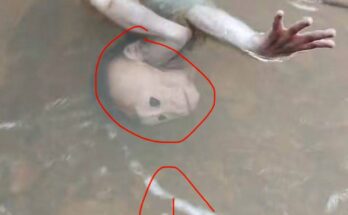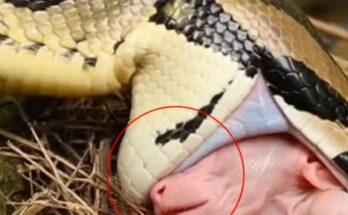
For Jitu, a young farmer known for his sharp shooting, this was the last straw. The durian harvest was his main source of income, and the monkeys had turned it into their private buffet. With frustration simmering in his chest, Jitu decided to take action. Slinging his old air rifle over his shoulder, he set out toward the orchard, his eyes scanning the treetops for movement.
Not long after, a rustle echoed through the branches. There it was—a large wild monkey perched high above, tearing open another durian with practiced ease. The golden flesh glistened in the light, and the monkey munched happily, completely unaware of the danger below.
Jitu took a deep breath and crouched low, steadying his aim. His heartbeat pounded in his ears. He whispered to himself, “Sekali ini aja, biar kapok kera-kera itu…” (Just this once, to teach them a lesson.)
Then—PANG!
The echo rang through the orchard. The monkey froze, its grip slipping. Within seconds, it fell from the branch, landing with a dull thud. Silence filled the air, broken only by the distant cries of other monkeys retreating deeper into the forest.
Jitu stood there, his hands trembling slightly. He had been angry—yes—but seeing the lifeless animal before him brought a pang of guilt he didn’t expect. The monkey had only been trying to eat, to survive, just as he was trying to protect his livelihood.
That night, Jitu sat on his porch, staring into the dark forest. The durian trees stood silent, their fruits untouched. But peace didn’t bring satisfaction—it brought questions. Was this truly the only way? Could humans and wildlife ever share the same land without conflict?
The next morning, Jitu met with other farmers. Together, they discussed new ways to protect their crops—fencing, noise deterrents, even fruit-sharing spots deeper in the forest to keep the monkeys away from the farms. It wasn’t perfect, but it was a start.
From that day on, the villagers called him “Jitu Parah,” a mix of respect and awe for his deadly aim. But in his heart, Jitu carried a different lesson: that sometimes, being a true “hunter” isn’t about taking life—it’s about protecting balance between man and nature.


